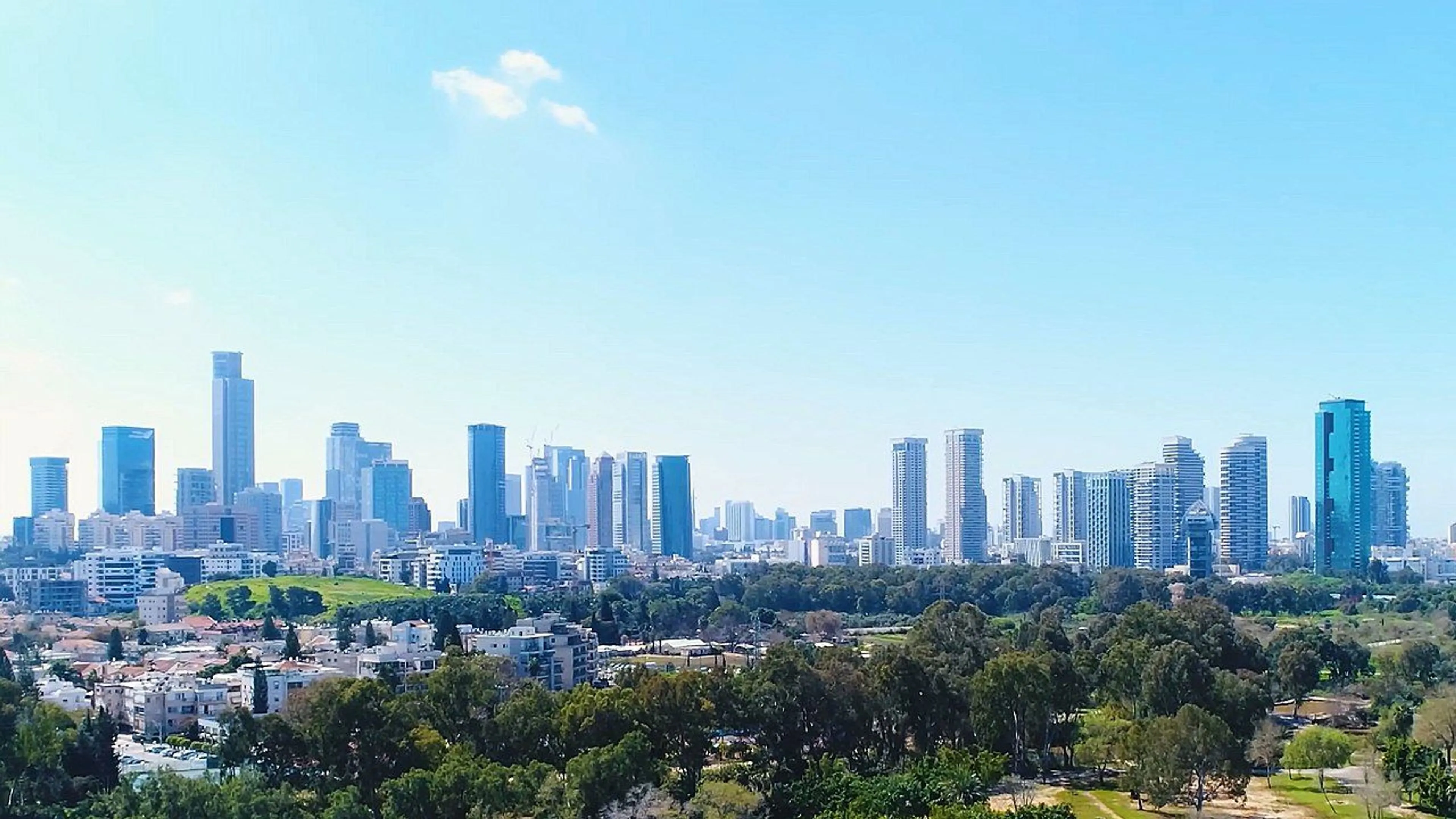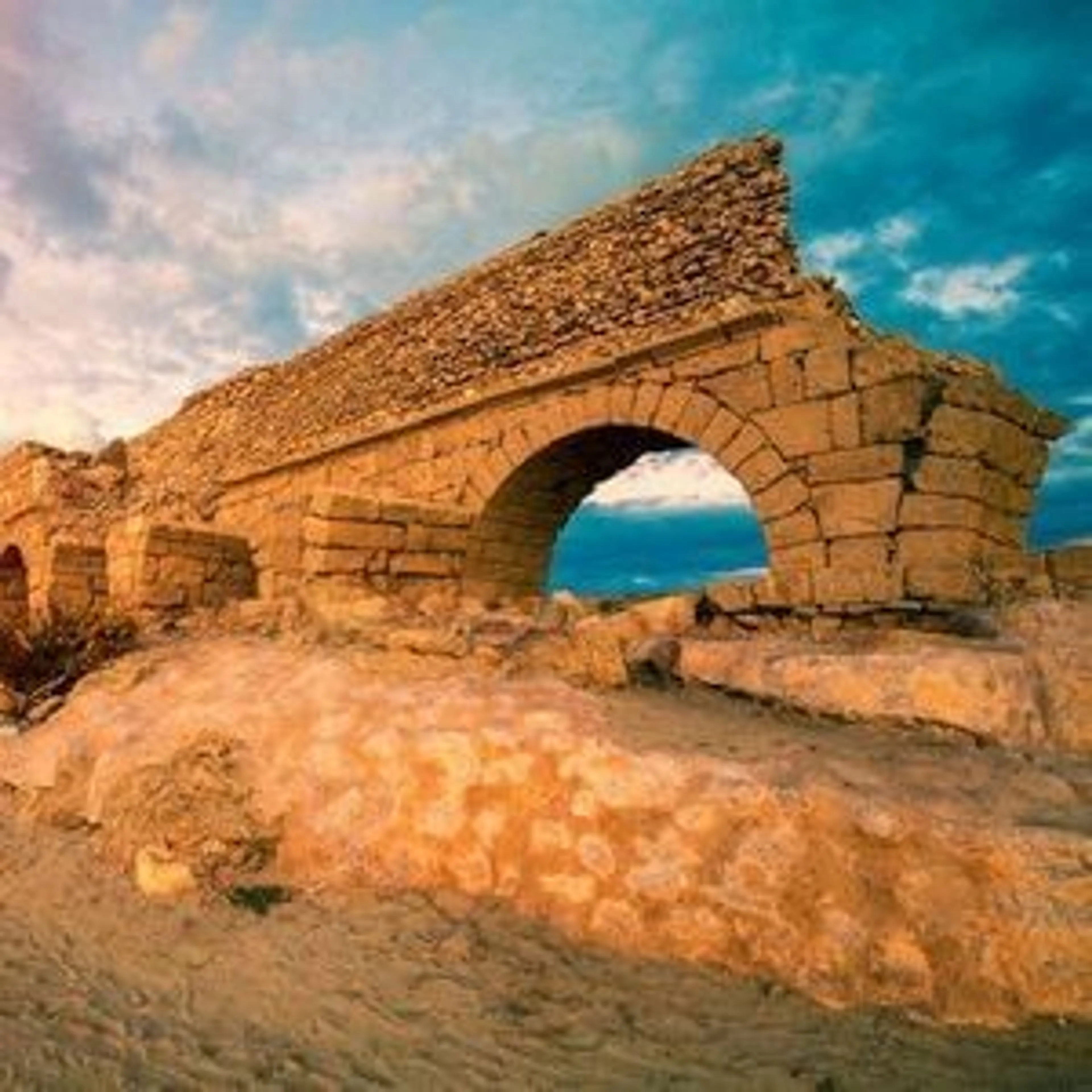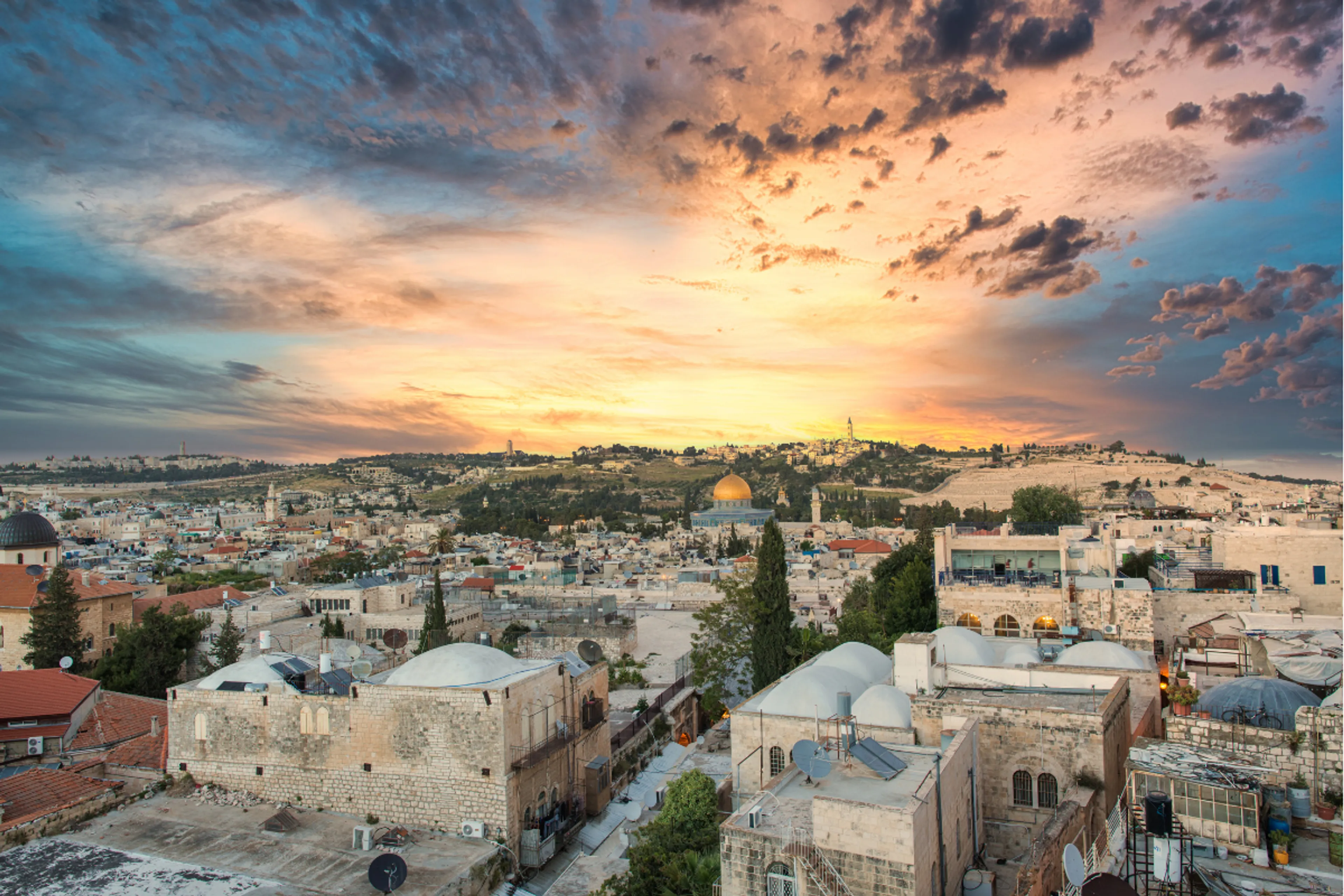Vacation Packages to Tabgha

Customize it!
HOLY CITIES & JORDAN
Tel Aviv, Galilee, Jerusalem, Caesarea, Nazareth, the Mount of Olives, and more.
English

Customize it!
HOLY CITIES & THE FOUR SEAS
Tel Aviv, Jerusalem, Caesarea, Rosh Hanikra, Cana, Dead Sea, Eilat and more.
English

Customize it!
FANTASTIC ISRAEL
Tel Aviv, Bethlehem, Jerusalem, the Western Wall, Mount of Olives and more.
English

Customize it!
HOLY CITIES
Tel Aviv, Galilee, Jerusalem, Caesarea, Nazareth, Mount of Olives, Bethlehem, Holy Sepulchre, Masada and more.
English
General Information about Tabgha
Tabgha is a small town located in northern Israel, on the shores of the Sea of Galilee. Known for its natural beauty and important religious heritage, Tabgha is a popular tourist destination for those seeking an authentic Middle Eastern experience.
Among Tabgha's main attractions is the Church of Multiplication, which commemorates Jesus' miracle in the multiplication of the loaves and fishes.
In addition, visitors can explore the Church of St. Peter the Primate and the Garden of Gethsemane, sacred sites for Christians.
But Tabgha is not only a religious destination, it also boasts beautiful natural landscapes, such as the Einot Tzukim nature reserve and Tabgha beach, perfect for enjoying a day of sun and sea.
If you are thinking of traveling to Tabgha, you should know that it is a safe and welcoming place, with a wide variety of accommodations and restaurants for all tastes and budgets.
Don't miss the opportunity to explore this wonderful tourist destination and discover all it has to offer.
What to See in Tabgha
Tabgha has different places of interest that are perfect to visit on your vacation to get a first-hand understanding of the culture of the region.
Church of the Multiplication
The Church of the Multiplication, located in Tabgha, Israel, is a sacred place for Christians, commemorating Jesus' miracle of the multiplication of the loaves and fishes.
Built in the 4th century, the church is known for its impressive mosaics, depicting the multiplication of the loaves and fishes, as well as the miraculous catch of fish.
For centuries, the Church of the Multiplication has been a place of pilgrimage for Christians from all over the world, who come to venerate the site where this important miracle took place.
The church has undergone numerous renovations and restorations over the years, but its original structure and mosaics have been carefully preserved.
Today, the Church of the Multiplication remains an important place of worship and a popular tourist destination, attracting visitors of all religions and cultures.
Its beauty and historical and religious significance make it a must-see for anyone interested in the history and culture of the region.
Church of the Beatitudes
The Church of the Beatitudes, also known as the Church of the Mountain, is a sacred place for Christians, located in Tabgha, Israel.
It sits on a hill overlooking the Sea of Galilee and is considered to be the place where Jesus delivered his famous Beatitudes Sermon.
Built in the 4th century, the church is known for its impressive architecture and beautiful mosaics depicting the Beatitudes.
For centuries, the Church of the Beatitudes has been a place of pilgrimage for Christians from all over the world, who come to contemplate the panoramic view of the Sea of Galilee and to meditate on the place where Jesus delivered his sermon.
Today, the church remains an important place of worship and a popular tourist destination, attracting visitors of all religions and cultures.
Domus Galilaeae
Domus Galilaeae is an educational and spiritual center located in the city of Tabgha in Northern Israel. It was founded in 2000 by the Focolare Movement, an international Catholic community.
The center boasts impressive modern architecture, combining traditional and contemporary elements, and is built on a beautiful site overlooking the Sea of Galilee.
Its aim is to promote interreligious dialogue and the spiritual and educational formation of young people and adults of all religions and cultures.
Domus Galilaeae offers courses and workshops on a variety of topics, including Jewish culture and religion, Christian spirituality and interfaith interaction. In addition, the center organizes spiritual retreats and interfaith encounters, with the aim of fostering tolerance and respect for all religions and cultures.
Without a doubt, Domus Galilaeae is a unique and special place that combines architectural and natural beauty with training and interreligious dialogue, making it a must-see for those seeking a place of reflection and spiritual growth.
Korazim National Park
Korazim National Park is a historically and culturally significant site in Israel. The park is located in the Galilee region, near the Sea of Galilee, and is a site of archaeological interest as well as a place of natural beauty.
Korazim is an ancient biblical city dating back to the 1st century AD. During Roman times, Korazim was an important center of Jewish culture and religion. It is believed that it was here that Jesus performed many of his miracles, and the city is mentioned several times in the Bible.
Korazim National Park includes the ruins of the ancient city, as well as a visitor center that offers information about the history and culture of the region. There are also walking trails and hiking trails that offer breathtaking views of the surrounding landscape.
Traditional Tabgha Food
Tabgha's traditional food is rich in flavors and aromas, and is influenced by the cultures and culinary traditions of the region. Tabgha's cuisine is based mainly on fresh and healthy ingredients, such as fruits, vegetables, meats and fish.
One of the most popular dishes in the region is fish from the Sea of Galilee, which is prepared in a variety of ways, such as grilled or baked, and served with a variety of side dishes, such as rice and fresh salads. Hummus, tabbouleh and other vegetarian dishes are also common.
Another popular dish in Tabgha is Shawarma, which is a mixture of meat and spices cooked on a vertical spit, and served in pita bread with salads and yogurt sauce. In addition, sweets and desserts are an important part of Tabgha cuisine, with delicacies such as baklava and kunefe, which are filo dough and honey based sweets.
Tabgha's traditional food is a reflection of the region's rich history and cultural diversity, and is an essential part of Israel's culinary experience.
Check out Greca's travel guides and make the most of your vacation.
Importance of Religion in Tabgha
Tabgha is a sacred place for many religions, and its rich religious and cultural history is a fundamental aspect of its identity. The region is especially important to Christianity, as it is believed to be the place where Jesus performed many of his miracles.
The Church of the Multiplication, for example, is a sacred place where Jesus is believed to have multiplied the loaves and fishes to feed a multitude of people.
The church is a place of pilgrimage for many Christians, and is an important symbol of the religious and cultural history of the region.
In addition, the Tabgha region is an interfaith meeting place, where people of different faiths and cultures come together to share their faith and learn from each other. The local people practice a form of peaceful coexistence, based on respect and tolerance towards different religions and cultures.
Food and culinary traditions also play an important role in Tabgha's religious culture, and are often used as a means of interfaith connection and dialogue.
The local cuisine reflects the cultural diversity of the region, and is an example of how food can be a means to foster mutual understanding and respect.
Ultimately, the cultural aspects of religion in Tabgha are an integral part of its identity and cultural heritage, and are a reflection of the region's rich religious and cultural history.
01When is the best time to travel to Tabgha?
The best time to travel to Tabgha is in spring and autumn, when temperatures are mild and there are fewer tourists. In summer, temperatures may be too high for most visitors.
02What is the climate like in Tabgha?
Tabgha has a Mediterranean climate, with hot, dry summers and mild, rainy winters. During the summer months the average temperatures are around 30-35 degrees, and in winter around 10-20 degrees on average.
03How much time do I need to visit Tabgha?
Visiting time depends on one's interests and availability, but in general we recommend spending at least half a day to see the main sights.
04What documentation do I need to enter Tabgha?
If you are not a citizen of a country that has a visa waiver agreement with Israel, you will need to obtain a tourist visa before traveling to Israel. It is important to check visa requirements with the Israeli embassy or consulate in your home country before traveling.
05What is the closest airport to Tabgha?
The closest airport to Tabgha is Ben Gurion International Airport in Tel Aviv, which is about a 2-hour drive from Tabgha.
06What is the currency in Israel?
The currency used in Tabgha is the Israeli Shekel (ILS).